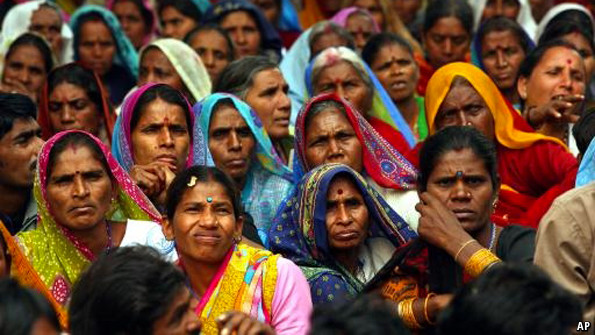
Dravidians and Nagas Are One And The Same People – Dr Ambedkar
Who are the Dravidians? Are they different from the Nagas? Or are they two different names for a people of the same race? It is a fact that the term Dravidians and Nagas are merely two different names for the same people.
It is not to be denied that very few will be prepared to admit the proposition that the Dravidians and Nagas are merely two different names for the same people and fewer that the Dravidians as Nagas occupied not merely South India but that they occupied the whole of India—South as well as North.
Nonetheless, these are historical truths. Nagas and Dravidians are one and the same people.
Even with this much of proof, people may not be ready to accept the thesis. The chief difficulty in the way of accepting it lies in the designation of the people of South India by the name Dravidian.
It is natural for them to ask why the term Dravidian has come to be restricted to the people of South India if they are really Nagas. Critics are bound to ask: If the Dravidians and the Nagas are the same people, why is the name Nagas not used to designate people of South India also…
The word ‘Dravida’ is not an original word. It is the Sanskritized form of the word ‘Tamil’. The original word ‘Tamil’ when imported into Sanskrit became ‘Damilla’ and later on ‘Damita’ became Dravida. The word Dravida is the name of the language of the people and does not denote the race of the people.
The third thing to remember is that Tamil or Dravida was not merely the language of South India but before the Aryans came it was the language of the whole of India and was spoken from Kashmir to Cape Comorin. In fact, it was the language of the Nagas throughout India.
The next thing to note is the contact between the Aryans and the Nagas and the effect it produced on the Nagas and their language. Strange as it may appear the effect of this contact on the Nagas of North India was quite different from the effect it produced on the Nagas of South India.
The Nagas in North India gave up Tamil which was their mother tongue and adopted Sanskrit in its place. The Nagas in South India retained Tamil as their mother tongue and did not adopt Sanskrit the language of the Aryans.
If this difference is borne in mind it will help to explain why the name Dravida came to be applied only to the people of South India. The necessity for the application of the name Dravida to the Nagas of Northern India had ceased because they had ceased to speak the Dravida language.
But so far as the Nagas of South India are concerned not only the propriety of calling them Dravida had remained in view of their adherence to the Dravida language but the necessity of calling them Dravida had become very urgent in view of their being the only people speaking the Dravida language after the Nagas of North had ceased to use it.
This is the real reason why the people of South India have come to be called Dravidians. The special application of the word Dravida for the people of South India must not, therefore, obscure the fact that the Nagas and Dravidas are the one and the same people. They are only two different names for the same people.
Nagas was a racial or cultural name and Dravida was their linguistic name.
Thus the Dasas are the same as the Nagas and the Nagas are the same as the Dravidians. In other words what we can say about the races of India is that there have been at the most only two races in the field, the Aryans and the Nagas.
– Dr. B. R. Ambedkar
Source – The Untouchables: Who were they and why they Became Untouchables book by Dr Ambedkar


It is not just Nagas and Dravidians; the whole humanity is the same people; just one.
Then how were so many languages within NAGAS took place, why were our people divided in languages.???
Caste is created by criminal and it is offence and hurdle for progress of the country ,hence it must be end at early stage ,otherwise effected people will start caste war to eradicate it in the interest of the country because country became slave due to caste in the past .